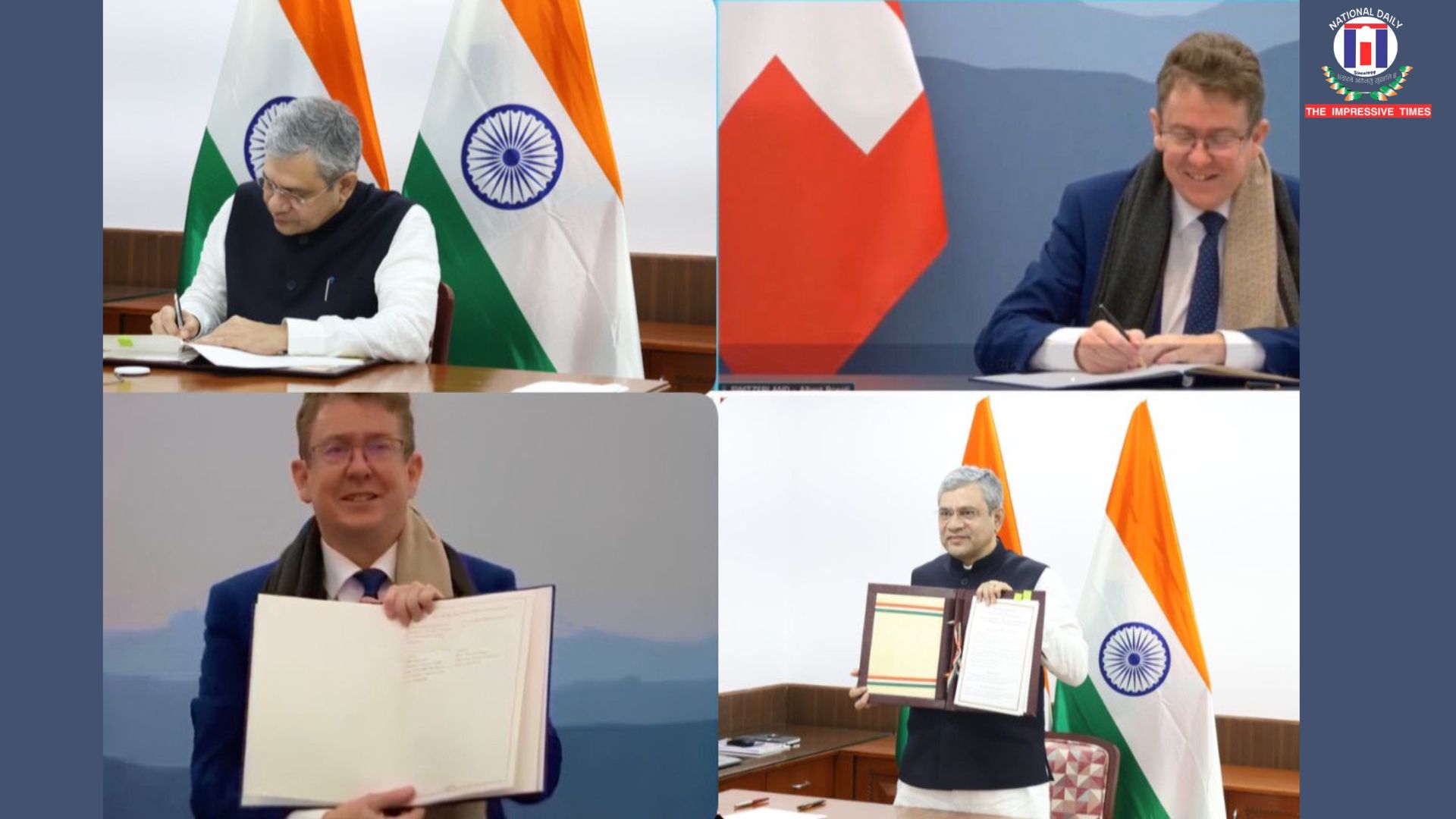
New Delhi, 29 October 2024: In a move set to transform India’s railway infrastructure, Indian Railways and Swiss Railways formalized a Memorandum of Understanding (MoU) to strengthen technical cooperation aimed at improving efficiency, safety, and reliability within India’s rail system. The agreement was signed today via video conference, with Shri Ashwini Vaishnaw, India’s Minister of Railways, Information and Broadcasting, Electronics and Information Technology, and Mr. Albert Roesti, Federal Councillor and Head of Switzerland’s Federal Department of the Environment, Transport, and Communications, officially representing their respective nations.
This partnership is poised to bring Swiss expertise into various critical areas of India’s railway operations. In his address, Mr. Roesti outlined how Switzerland’s advanced railway technology, renowned for its precision and safety, could benefit Indian Railways. Mr. Vaishnaw emphasized India’s commitment to advancing its railway sector, particularly in terms of safety, efficiency, and sustainability. He noted that the MoU would directly contribute to India’s efforts to modernize and expand railway infrastructure and services, which are essential for accommodating the country’s growing passenger and freight demands.
To facilitate this collaboration, a Joint Working Group (JWG) has been established, composed of representatives from both Indian Railways and Swiss Railways. The JWG met twice before the formal signing to outline key areas of focus, with the aim of leveraging Swiss expertise to tackle India’s most pressing railway challenges. The four primary domains identified include:
1. Freight and Passenger Cars: Upgrading both freight and passenger car systems to increase capacity, comfort, and safety.
2. Railway Electrification Equipment: Improving railway electrification infrastructure to support sustainable energy use and reduce carbon emissions.
3. Railway Station Modernization: Revamping railway stations to improve passenger experience, streamline operations, and integrate modern facilities.
4. Tunneling Technology: Addressing challenges related to railway construction in difficult terrains, utilizing Swiss tunneling expertise to improve safety and project efficiency.
During the third JWG meeting, which was co-chaired by the then Chairman and CEO of the Indian Railway Board and the Director of the Federal Office of Transport in Switzerland, representatives from Indian Railways presented an overview of ongoing capital expenditure initiatives. These included large-scale infrastructure projects intended to expand railway capacity and efficiency. The Indian side highlighted numerous investment opportunities available for Swiss companies within the Indian railway sector, signaling a mutually beneficial economic partnership.
The collaboration with Swiss Railways is expected to provide Indian Railways with high-quality machinery, materials, and technical expertise. Swiss companies will contribute specialized machinery and materials, particularly for the demanding tunneling projects across diverse Indian terrains. In addition to providing consultancy services, Swiss firms will support technical and operational training programs for Indian Railway employees to enhance workforce capabilities. The adoption of Swiss technology is projected to improve the operational reliability of Indian Railways, ultimately leading to better services for both passengers and freight operators.
This partnership aligns with the Indian government’s broader objectives of expanding the national railway network to meet increasing demands while integrating sustainable technologies. By embracing international best practices and innovative technologies, Indian Railways aims to support economic growth, improve the passenger experience, and ensure that Indian businesses have efficient and reliable access to freight services.
Earlier, Mr. Mridul Kumar, Ambassador of India to Switzerland, presented Mr. Albert Roesti with a shawl, a gesture symbolizing the warmth of bilateral relations. The MoU is seen as a testament to the growing partnership between India and Switzerland, with both countries committed to exploring further opportunities for mutual benefit. The cooperation is expected to enhance not only the operational capacities of Indian Railways but also to deepen cultural and diplomatic ties.
This agreement comes at a time when Indian Railways is undertaking several modernization projects aimed at making the rail network more efficient and reliable. Over the next few years, the Indian government anticipates the gradual integration of new technologies and systems across the national railway, which will allow it to meet global standards and improve its service offerings. Through partnerships like this, Indian Railways is positioning itself as a leading player in Asia’s railway industry, setting an example for innovation-driven growth and sustainability.











No Comments: